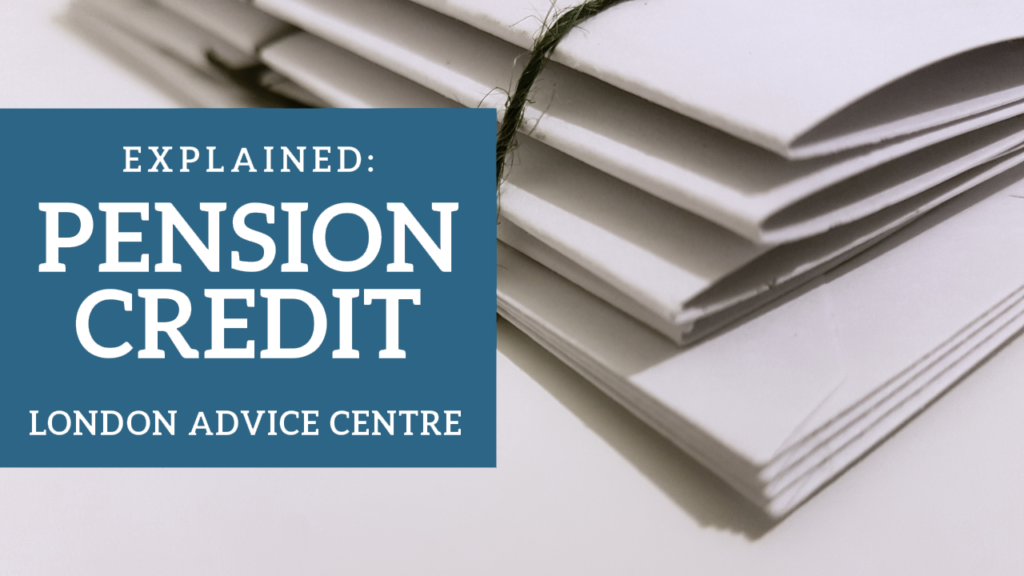
Pension Credit is an extra sum of money, separate to your State Pension, to help cover living costs (rent, grounds service etc) if you are of State Pension Age and on a low income. You can also claim if you’re a carer, severely disabled for responsible for a child/minor.
If your Pension Credit claim is successful you may also be eligible for other help:
- Housing benefit (if you rent your accommodation)
- Support for Mortgagee Interest (if you own your home)
- Free TV licence (aged 75 or older)
- Help with heating bills
- Council Tax Reduction
- Help with NHS dental treatment, glasses or transport to hospital appointments
Not only could you receive weekly income top ups, you may be entitled to more. Pension Credit is definitely worth considering no matter who you are. (We always recommend contacting a financial advisor if you are unsure or need assistance with the processes).
Eligibility
Eligibility is simple: you must live in England, Wales or Scotland and have reached State Pension age. You must included your partner on your application, if you have one. Whether that’s a married partner, civil partner or if you live with them. So you’ll be eligible if you or your partner have reached State Pension age or one of you receives Housing Benefit for those over State Pension age.
If you apply for Pension Credit, it’ll be based on your income, so the actual credit will top up for weekly income to a certain amount: £177.10 if you’re single, £270.30 if you’re in a couple. Your income includes your State Pensions, other earnings (if you’re employed/self-employed), other pensions and other benefits you’re already receiving.
Not all benefits count towards your income. Some are excluded:
- Housing Benefit
- Council Tax Reduction
- Child Benefit
- Personal Independence Payment (PIP)
- Disability Living Allowance
- Social fund payments
- Christmas Bonus
- Attendance Allowance
Unlike the State Pension, your savings do make a difference in your total amount; less than £10,000 in savings will not count towards your total. Over £10,000 means for every £500 you have in savings, £1 will count towards your weekly income. Although not a great amount it may add up quickly if your saving and investments are high enough.
However, you may still be eligible if you have housing costs, if you care for someone or have a disability yourself. If you have any confusion regarding your Pension Credit claim or application, please refer to a benefits consultant for guidance – London Advice Centre is always available to help if you need it. So call 020 3092 8211 for your personalised consultation.
The 2 types of Pension Credit
Pension Credit has 2 categories. Guarantee Credit tops up your weekly credit, and Savings Credit tops up your weekly amount if you already have savings or moderate income (only available if you reached State Pension age before 6th April 2016).
Guarantee Credit is the extra amount you receive for other costs. For example, if you are disabled and receive PIP/Attendance Allowance/Disability Living Allowance (middle-highest sum)/Armed Forced Independence Payment you’ll receive an extra £67.30 weekly. For more in-depth information regarding Guarantee Credit and if you are eligible, please refer to the gov.uk website for more. Pension Credit: What you’ll get – GOV.UK (www.gov.uk)
Savings Credit applies if you have a weekly income of £153.70 if you’re single, or £244.14 as a couple; the most you can get form Savings Credit is £14.04 if you’re single, or £15.71 for a couple. But not everything counts income, these differ from Guarantee Credit so make sure you double check. Do not included these in your weekly income:
- working tax credits
- contributory ESA or JSA
- severe disability allowance
- maternity allowance
- maintenance payments
- incapacity benefit
You can apply 4 months in advance of you reaching State Pension age. Apply immediately. Your claim can only be backdated by up to 3 months.
If you need assistance or advice regarding your application for Pension Credit, London Advice Centre would be happy to guide you through the process. Just call 020 3092 8211 for your personalised consultation or email us at info@londonadvicecentre.org
Please note: this post was written in line with guidance at the time of publishing. For the most up-to-date guidelines please refer to gov.uk